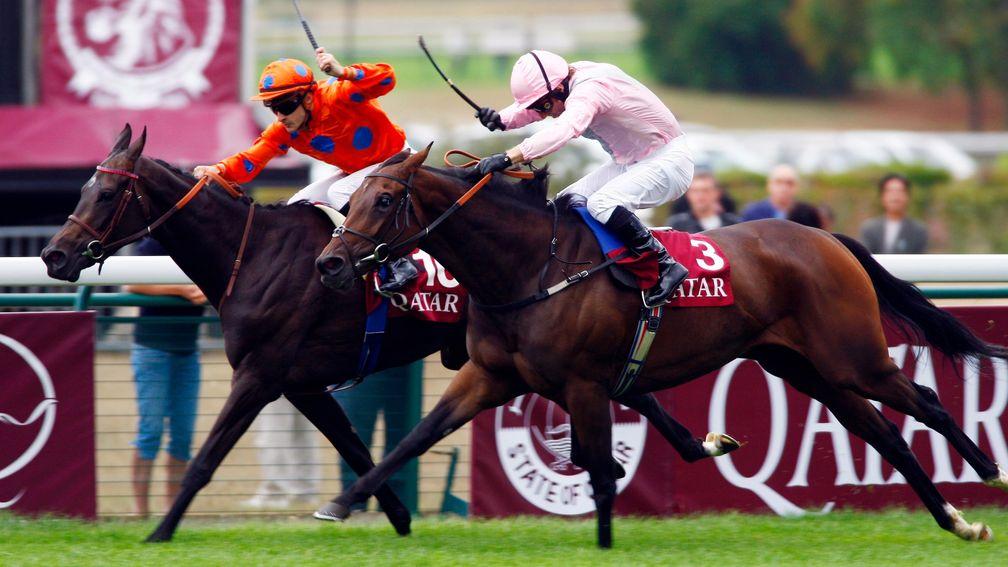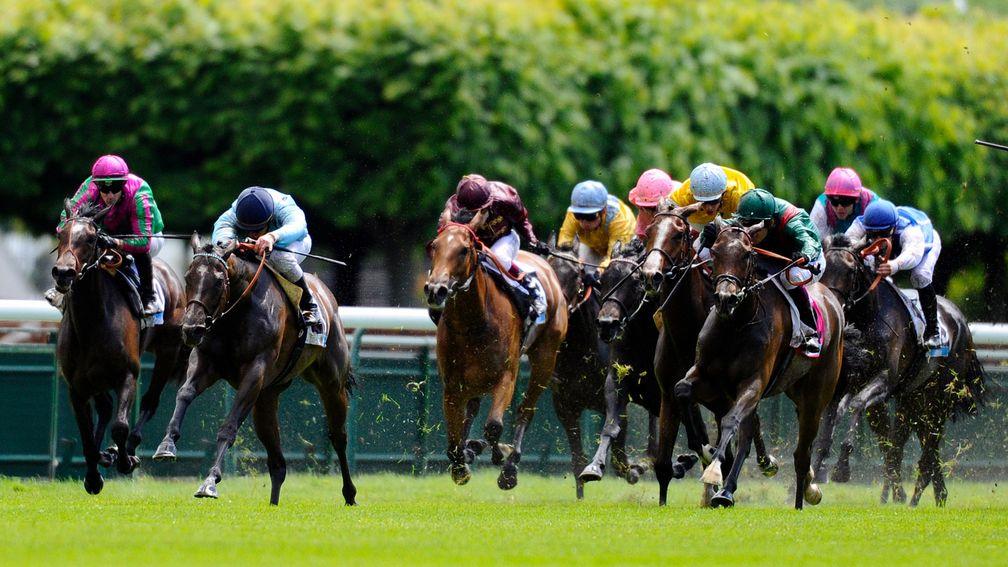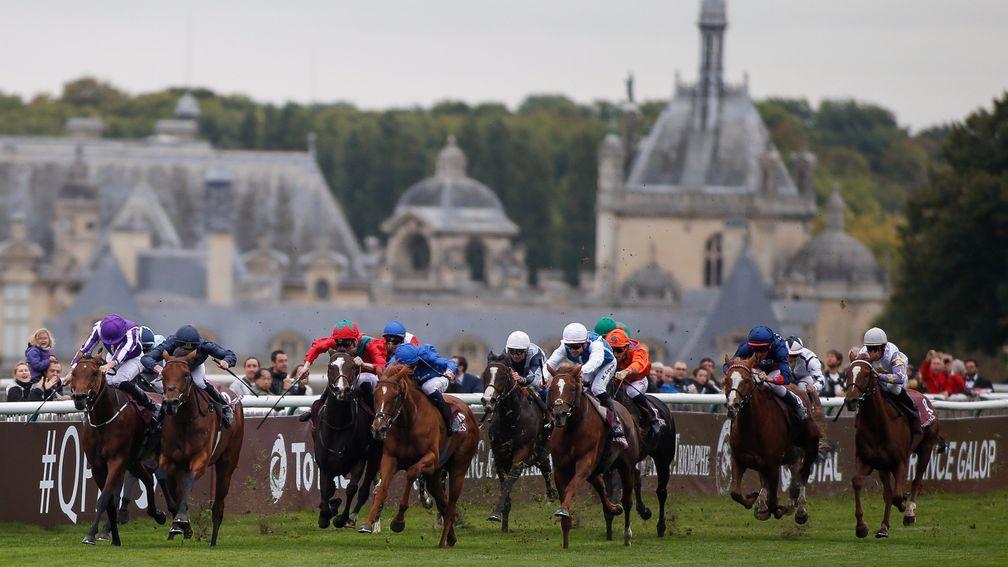May the best horse win - but at the expense of everyone else?
Scott Burton reflects on the planned changes to rules on interference

The mere mention of Dar Re Mi's demotion after the 2009 Prix Vermeille still raises the hackles of many a British and Irish racing fan, proof if any were needed that the unfathomable French rules on interference ran counter to the laws of natural justice.
And so, when on Tuesday the International Federation of Horseracing Authorities struck a deservedly triumphant note in announcing the adoption of a 'model rule' on interference, many will have cheered along with them.
Plenty of extremely intelligent people have given over an enormous amount of time and effort in working on ways to bridge the gap between two quite different philosophies of stewarding and, to have reached a position where France and Germany have moved close enough to the British, Irish and Asian version of the rules, merits recognition.
The promotion of the sport's international popularity and profile has been the driver behind the harmonisation project and the IFHA believes the model rule will help increase co-mingling and international wagering, with punters now confident they are betting on the same product abroad as they are used to at home (wherever home might be).
All of this is to be applauded, with trainers of such standing as Freddy Head and Alain de Royer-Dupre believing such a move to be overdue.

There is just one question which remains: has the movement required to bring those two views closer together travelled in the right direction? Or could it instead be argued that the majority who follow the theory of favouring "the best horse in the race" been allowed to convince the minority to abandon an essentially sound principle.
When interference occurs, a steward officiating at Ascot or Newmarket this weekend has the unenviable task of devising in their own mind, an alternate universe. They must decide not just that a horse has suffered interference but also give an estimation – in lengths, necks and heads – as to how much ground that interference has caused.
In a few cases it is easy enough to decide, say when a horse full of running drifts across a beaten rival who is already backpeddling.
But in many more cases, the incident will happen when both horses are being asked for their winning effort. How much ground is cost when a horse is stopped in its run is impossible to quantify, and stewards should not be asked to guess.
In theory fewer demotions will now be handed down in France, since there is a much bigger burden of proof to say that horse 'B' would have definitely beaten horse 'A' when they end up two lengths adrift.
But one by-product of what some jockeys may interpret as a relaxation of the rules could be that more incidents occur in the first place. If natural justice is to be served, the fewer times that the stewards are asked to intervene, the better.
This last point can't be proved ahead of time and in some senses strays into the same kind of interpretive territory that the new rules will be inviting the stewards to explore.
But watching French and British racing day to day, there appear to be fewer egregious examples of interference in the juristiction where there is a greater chance of losing the race in the stewards' room.
At French insistence, there is still the option of throwing the winner out if the jockey has executed a dangerous manoeuvre, while there are countries that follow the category one principle but which hand out extremely harsh punishments for reckless riding.
However, once the threat of the horse losing the race is significantly lessened – with the sanction for horse and rider effectively divorced – jockeys will take more risks, especially when the stakes are at their highest in the biggest races.
In any individual case – Stacelita v Dar Re Mi or any other that you care to choose – it can always be argued one way or another as to whether or not the best horse won.
That debate is the compelling attraction of the sport before the race is run. It should not spill over into the deliberation of the stewards afterwards.

Bravo Chantilly
There is no small amount of irony in the fact that Sunday's Arc was one of the cleanest in living memory.
Despite dire warnings from local observers that Chantilly is less reliable than Longchamp in providing the right winner, the stewards found only one of the 18 riders at fault, handing an 12 day ban to Andrasch Starke for using the whip above the permitted number of strokes.
Many has been the year when the stewards report has required half a forest to print out and fines and bans have been handed to half the field.
The 2017 edition featured few hard luck stories and unquestionably the best horse won.
What must also be said is that the team at Chantilly are deserving of every piece of praise going for pulling off France's biggest racing weekend with less space and a fraction of the nearby infrastructure available in Paris.
To Matthieu Vincent, Marin Le Cour Grandmaison and all the team at Chantilly, bravo!
Members can read the latest exclusive interviews, news analysis and comment available from 6pm daily on racingpost.com
Published on inInternational
Last updated
- Skyscraper betting and soaring turnover: Japan's mind-boggling racing experience and the unlikely hero who sparked the boom
- Oisin Murphy a man in demand as revitalised Summer Cup card gives South African racing a platform to build on
- Ben Cecil, Grade 1-winning trainer and nephew of Sir Henry, dies aged 56
- Oisin Murphy: 'Billy Loughnane is the most talented rider I have ever seen at his age'
- Turffontein Summer Cup: Oisin Murphy up against Michael Roberts-trained ace See It Again on first ride in South Africa
- Skyscraper betting and soaring turnover: Japan's mind-boggling racing experience and the unlikely hero who sparked the boom
- Oisin Murphy a man in demand as revitalised Summer Cup card gives South African racing a platform to build on
- Ben Cecil, Grade 1-winning trainer and nephew of Sir Henry, dies aged 56
- Oisin Murphy: 'Billy Loughnane is the most talented rider I have ever seen at his age'
- Turffontein Summer Cup: Oisin Murphy up against Michael Roberts-trained ace See It Again on first ride in South Africa